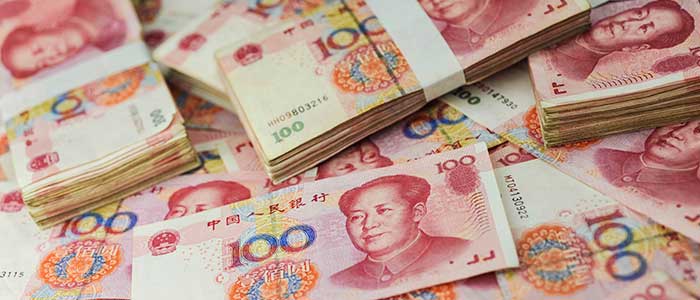The firm trimmed its rating for the country’s sovereign debt by one notch from A1 to Aa3 – a move that could make borrowing more expensive for China and one that has been rejected by the country’s finance ministry.
After years of rapid growth, fuelled by hefty stimulus from the authorities, China now faces the dual task of dealing with the risky byproducts of this and bringing the economy on to a more sustainable footing.
The latter aim, backed by global institutions as necessary, has seen growth drop from a peak of 10.6% in 2010 to 6.7% last year – a trend expected to continue, with Moody’s predicting a gradual cooling down of close to 5% over the next five years.
However, it highlighted that official growth targets are likely to fall at a more gradual pace, given the importance the Chinese government attaches to them, “rendering the economy increasingly reliant on policy stimulus”.
In the short-term at least, this is likely to centre on fiscal policy and increased spending by the government and its related entities.
As a consequence, Moody’s expects the government’s direct debt burden to rise slowly towards 40% of GDP by 2018 and closer to 45% by the end of the decade, while other fiscal risks will rise from issues including high levels of off-book local government borrowing.
At the same time, private debt from households and businesses is also on the rise. Moody’s joined other observers in highlighting the risks of an overall debt pile that hit 256% of GDP at the end of last year, which it said signalled “an erosion” in China’s credit profile.
Responding to Moody’s assessment, the Chinese ministry of finance said the downgrade had been based on “inappropriate methodology” that exaggerated the country’s economic difficulties, underestimated the potential of its reforms and evidenced a “lack of necessary understanding” of the country’s budget laws.
Officially, Chinese local governments do not guarantee mountains of debt accrued on their behalf by state-owned investment vehicles in order to promote growth, although in the past this has been implied. The government has since attempted to lessen their burden by enabling debt swaps.
However observes believe runaway credit has accumulated to such an extent that these measures will be insufficient and the government will have to step in, leading to a leap in public debt levels.
Moody’s also cast doubt on the effectiveness of China’s reform plans, although it said the government’s commitment was “clear”.
“We do not think that the reform effort will have sufficient impact, sufficiently quickly, to contain the erosion of credit strength associated with the combination of economy-wide leverage and slower growth,” the agency stated.












